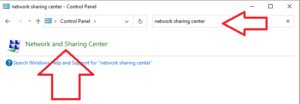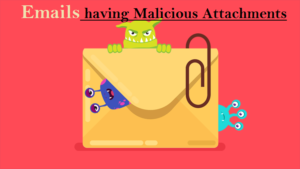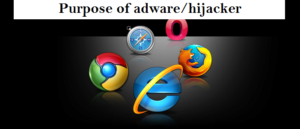How to remove .Eject file virus
Tips for .Eject file virus removal
Eject or otherwise called .Eject file virus is a malicious program from Phobos ransomware family. It encrypts data and demands ransom payments for decryption tools/software. During the encryption process, all files are renamed with the victim’s unique ID, developers’ email address and the “.eject” extension. For example, “1.jpg” might appear similar to “1.jpg.id[1E857D00-2315].[[email protected]].eject. Soon after the infection, a text file (“info.txt”) and an HTML application (“info.hta”) are stored on the desktop.
The text file states that all data has been encrypted and, to decrypt it, users must contact the .Eject file virus developers via the email address provided. The HTML file displays a pop-up window and the message within repeats the “info.txt” claims. However, it also adds further detailed information. It states that the email that the victims have to send must contain their unique ID in the title/subject field. As per the note, soon after the payment, they are provided the information like how much to pay for the decryption tool or how to use it and so on. The crooks offer free decryption service as a proof that the decryption tool can be trusted. For this, the users are allowed to attach up to 5 encrypted files. These files cannot exceed 4 MB (non-archived) and contain no valuable information (e.g. databases, backups, large excel sheets, or similar). The message ends with warnings stating that the encrypted files must not be renamed and attempts must not be made to decrypt them with third party software – this will lead to permanent data loss.
Text presented in .Eject file virus’s created .txt file:
!!!All of your files are encrypted!!!
To decrypt them send e-mail to this address: [email protected].
Full text presented on .hta file created by the .Eject file virus:
All your files have been encrypted!
All your files have been encrypted due to a security problem with your PC. If you want to restore them, write us to the e-mail [email protected]
Write this ID in the title of your message 1E857D00-2315
You have to pay for decryption in Bitcoins. The price depends on how fast you write to us. After payment we will send you the tool that will decrypt all your files.
Free decryption as guarantee
Before paying you can send us up to 5 files for free decryption. The total size of files must be less than 4Mb (non archived), and files should not contain valuable information. (databases,backups, large excel sheets, etc.)
How to obtain Bitcoins
The easiest way to buy bitcoins is LocalBitcoins site. You have to register, click ‘Buy bitcoins’, and select the seller by payment method and price.
hxxps://localbitcoins.com/buy_bitcoins
Also you can find other places to buy Bitcoins and beginners guide here:
hxxp://www.coindesk.com/information/how-can-i-buy-bitcoins/
Attention!
Do not rename encrypted files.
Do not try to decrypt your data using third party software, it may cause permanent data loss.
Decryption of your files with the help of third parties may cause increased price (they add their fee to our) or you can become a victim of a scam.
In most cases of ransomware infections, only the program that encrypted the data is capable of decryption. Therefore, only the malware developers can allow the data to be restored. Regardless, you are strongly advised against contacting and/or meeting the ransom demands of cyber criminals. The crooks are here just to scam the users. In other word, the users who pay to .Eject file virus developers will lose their crucial money and even after that their files will remain in the encrypted, inaccessible condition. You are recommended to use some data recovery alternatives.
The best way to approach this situation is to remove .Eject file virus and then use existing backup for the data recovery. If you do not have files, you have various other data recovery options in the form of data recovery tools, shadow volume copies –check below the post in the data recovery section for this. Before proceeding with any of the methods, you should the malware removal so that it will not interfere during the restoration process. Also, the virus removal ensures no further files encryption on the device and will avoid various possible risks, including the data stealing risks and the risk of additional malware intrusion in future.
How did ransomware infect my computer?
Ransomware viruses are most often distributed via using spam campaigns, Trojans, dubious software download channels, fake software updates and unofficial software activation tools. Cyber criminals send various emails that contain attachments or web links. Their main goal is to trick recipients into opening them. If opened, the attached/downloaded files infect computers with malware. Trojans are malicious programs that cause additional installation of malware. Third party downloaders, free file hosting websites, Peer-to-Peer (P2P) networks, websites that contain free software and other similar sources spread malware by presenting it as legit software. Fake software updaters do not update installed software, but simply install malware. They can also infect systems by exploiting bugs, flaws of already installed, outdated software. Cracking tools infect the devices by supposedly providing activation for paid software.
How to protect yourself from ransomware infections?
Do not open irrelevant attachments or the emails having unknown senders’ addresses. Use official websites and direct download links for any software download. Do not trust or use the sources or tools mentioned above. Also, rely only on those tools/functions from official software developers for any software updating and activation. Moreover, have some reputable anti-virus or anti-spyware software installed and scan the system with it regularly.
Threat Summary
Type: Ransomware
Symptoms: Stored files become inaccessible, and their filename gets renamed. Ransom demanding message is displayed on the desktop. Cyber crooks demand ransom payment for the files decryption.
Distribution methods: infected email attachments, torrent sites and malicious ads
Damages: Risk of password stealing Trojan or other dangerous virus intrusion that cause direct damage to the system/software installed
Removal: Use some reputable antivirus tool or follow below mentioned step by step instruction to remove .Eject file virus from the system
Files recovery: Use existing backup. If you do not have such tools, refer data recovery tool provided for you just below the post for the restoration of the damaged files
Remove .Eject file virus
Manual malware removal guide is provided below in step by step manner. Follow it so that you will not find any trouble during removal process. You can use some reputable antivirus tool to automatically remove .Eject file virus from the device.
Special Offer (For Windows)
.Eject file virus can be creepy computer infection that may regain its presence again and again as it keeps its files hidden on computers. To accomplish a hassle free removal of this malware, we suggest you take a try with a powerful Spyhunter antimalware scanner to check if the program can help you getting rid of this virus.
Do make sure to read SpyHunter’s EULA, Threat Assessment Criteria, and Privacy Policy. Spyhunter free scanner downloaded just scans and detect present threats from computers and can remove them as well once, however it requires you to wiat for next 48 hours. If you intend to remove detected therats instantly, then you will have to buy its licenses version that will activate the software fully.
Data Recovery Offer
We Suggest you to choose your lately created backup files in order to restore your encrypted files, however in case if you don’t have any such backups, you can try a data recovery tool to check if you can restore your lost data.
Antimalware Details And User Guide
Step 1: Remove .Eject file virus through “Safe Mode with Networking”
Step 2: Delete .Eject file virus using “System Restore”
Step 1: Remove .Eject file virus through “Safe Mode with Networking”
For Windows XP and Windows 7 users: Boot the PC in “Safe Mode”. Click on “Start” option and continuously press on F8 during the start process until the “Windows Advanced Option” menu appears on the screen. Choose “Safe Mode with Networking” from the list.

Now, a windows homescreen appears on the desktop and work-station is now working on “Safe mode with networking”.
For Windows 8 Users: Go to the “Start Screen”. In the search results select settings, type “Advanced”. In the “General PC Settings” option, choose “Advanced startup” option. Again, click on the “Restart Now” option. The work-station boots to “Advanced Startup Option Menu”. Press on “Troubleshoot” and then “Advanced options” button. In the “Advanced Option Screen”, press on “Startup Settings”. Again, click on “Restart” button. The work-station will now restart in to the “Startup Setting” screen. Next is to press F5 to boot in Safe Mode in Networking.

For Windows 10 Users: Press on Windows logo and on the “Power” icon. In the newly opened menu, choose “Restart” while continuously holding “Shift” button on the keyboard. In the new open “Choose an option” window, click on “Troubleshoot” and then on the “Advanced Options”. Select “Startup Settings” and press on “Restart”. In the next window, click on “F5” button on the key-board.

Step 2: Delete .Eject file virus using “System Restore”
Log-in to the account infected with .Eject file virus. Open the browser and download a legitimate anti-malware tool. Do a full System scanning. Remove all the malicious detected entries.
Special Offer (For Windows)
.Eject file virus can be creepy computer infection that may regain its presence again and again as it keeps its files hidden on computers. To accomplish a hassle free removal of this malware, we suggest you take a try with a powerful Spyhunter antimalware scanner to check if the program can help you getting rid of this virus.
Do make sure to read SpyHunter’s EULA, Threat Assessment Criteria, and Privacy Policy. Spyhunter free scanner downloaded just scans and detect present threats from computers and can remove them as well once, however it requires you to wiat for next 48 hours. If you intend to remove detected therats instantly, then you will have to buy its licenses version that will activate the software fully.
Data Recovery Offer
We Suggest you to choose your lately created backup files in order to restore your encrypted files, however in case if you don’t have any such backups, you can try a data recovery tool to check if you can restore your lost data.
In case if you cannot start the PC in “Safe Mode with Networking”, Try using “System Restore”
- During the “Startup”, continuously press on F8 key until the “Advanced Option” menu appears. From the list, choose “Safe Mode with Command Prompt” and then press “Enter”

- In the new opened command prompt, enter “cd restore” and then press “Enter”.

- Type: rstrui.exe and Press “ENTER”

- Click “Next” on the new windows

- Choose any of the “Restore Points” and click on “Next”. (This step will restore the work-station to its earlier time and date prior to .Eject file virus infiltration in the PC.

- In the newly opened windows, press on “Yes”.

Once your PC gets restored to its previous date and time, download the recommended anti-malware tool and perform a deep scanning in order to remove .Eject file virus files if they left in the work-station.
In order to restore the each (separate) file by this ransomware, use “Windows Previous Version” feature. This method is effective when “System Restore Function” is enabled in the work-station.
Important Note: Some variants of .Eject file virus delete the “Shadow Volume Copies” as well hence this feature may not work all the time and is applicable for selective computers only.
How to Restore Individual Encrypted File:
In order to restore a single file, right click on it and go to “Properties”. Select “Previous Version” tab. Select a “Restore Point” and click on “Restore” option.

In order to access the files encrypted by .Eject file virus, you can also try using “Shadow Explorer”. In order to get more information on this application, press here.

Important: Data Encryption Ransomware are highly dangerous and it is always better that you take precautions to avoid its attack on your work-station. It is advised to use a powerful anti-malware tool in order to get protection in real-time. With this help of “SpyHunter”, “group policy objects” are implanted in the registries in order to block harmful infections like .Eject file virus.
Also, In Windows 10, you get a very unique feature called “Fall Creators Update” that offer “Controlled Folder Access” feature in order to block any kind of encryption to the files. With the help of this feature, any files stored in the locations such as “Documents”, “Pictures”, “Music”, “Videos”, “Favorites” and “Desktop” folders are safe by default.

It is very important that you install this “Windows 10 Fall Creators Update” in your PC to protect your important files and data from ransomware encryption. The more information on how to get this update and add an additional protection form rnasomware attack has been discussed here.
How to Recover the Files Encrypted by .Eject file virus?
Till now, you would have understood that what had happed to your personal files that got encrypted and how you can remove the scripts and payloads associated with .Eject file virus in order to protect your personal files that has not been damaged or encrypted until now. In order to retrieve the locked files, the depth information related to “System Restore” and “Shadow Volume Copies” has already been discussed earlier. However, in case if you are still unable to access the encrypted files then you can try using a data recovery tool.
Use of Data Recovery Tool
This step is for all those victims who have already tries all the above mentioned process but didn’t find any solution. Also it is important that you are able to access the PC and can install any software. The data recovery tool works on the basis of System scanning and recovery algorithm. It searches the System partitions in order to locate the original files which were deleted, corrupted or damaged by the malware. Remember that you must not re-install the Windows OS otherwise the “previous” copies will get deleted permanently. You have to clean the work-station at first and remove .Eject file virus infection. Leave the locked files as it is and follow the steps mentioned below.
Step1: Download the software in the work-station by clicking on the “Download” button below.
Step2: Execute the installer by clicking on downloaded files.
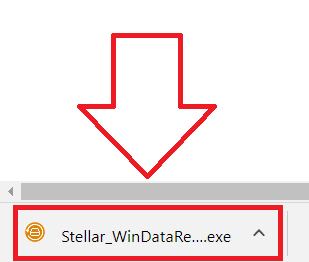
Step3: A license agreement page appears on the screen. Click on “Accept” to agree with its terms and use. Follow the on-screen instruction as mentioned and click on “Finish” button.

Step4: Once the installation gets completed, the program gets executed automatically. In the newly opened interface, select the file types that you want to recover and click on “Next”.

Step5: You can select the “Drives” on which you want the software to run and execute the recovery process. Next is to click on the “Scan” button.
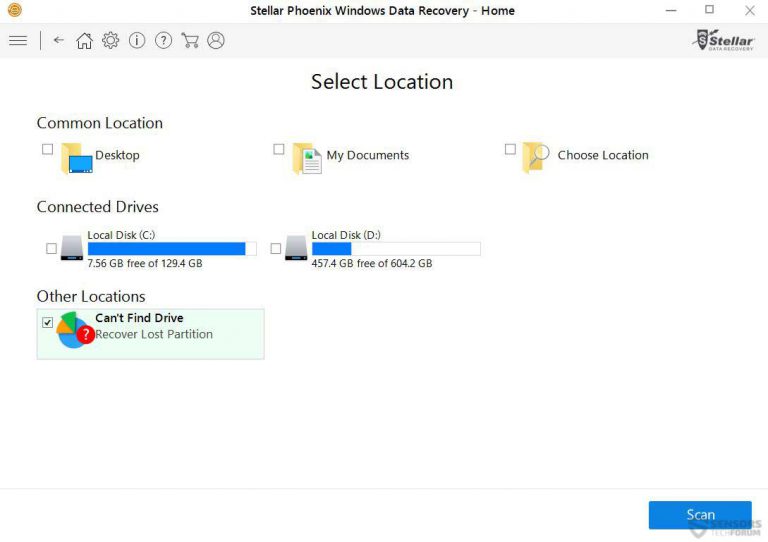
Step6: Based on drive you select for scanning, the restore process begins. The whole process may take time depending on the volume of the selected drive and number of files. Once the process gets completed, a data explorer appears on the screen with preview of that data that is to be recovered. Select the files that you want to restore.

Step7. Next is to locate the location where you want to saver the recovered files.

Special Offer (For Windows)
.Eject file virus can be creepy computer infection that may regain its presence again and again as it keeps its files hidden on computers. To accomplish a hassle free removal of this malware, we suggest you take a try with a powerful Spyhunter antimalware scanner to check if the program can help you getting rid of this virus.
Do make sure to read SpyHunter’s EULA, Threat Assessment Criteria, and Privacy Policy. Spyhunter free scanner downloaded just scans and detect present threats from computers and can remove them as well once, however it requires you to wiat for next 48 hours. If you intend to remove detected therats instantly, then you will have to buy its licenses version that will activate the software fully.
Data Recovery Offer
We Suggest you to choose your lately created backup files in order to restore your encrypted files, however in case if you don’t have any such backups, you can try a data recovery tool to check if you can restore your lost data.


